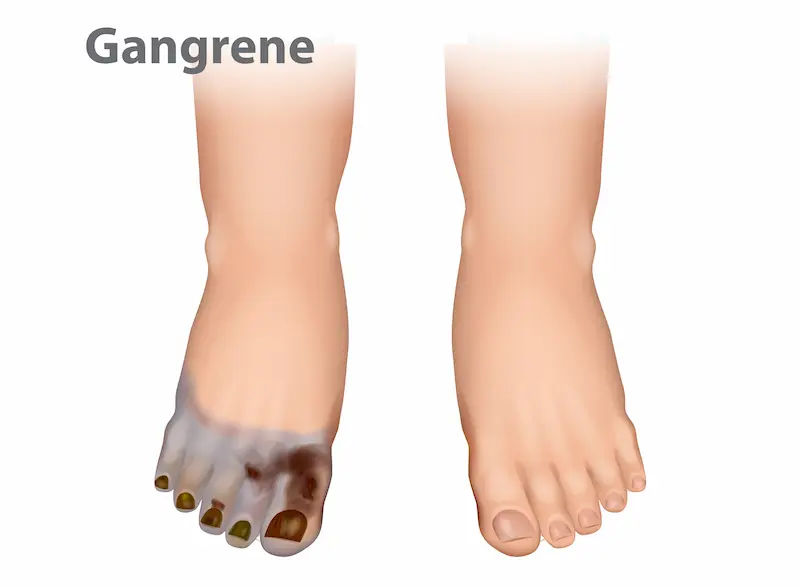Health Categories Guide Navigating Medical Information
Explore key health categories in this guide to better understand medical information and make informed decisions for your well-being.


Introduction
The world of health information can feel like a vast, overwhelming library without a catalogue. You have a symptom, a concern, or a simple desire to stay well, but where do you even begin? This is where understanding health categories becomes your most powerful tool. Rather than a random list of ailments, medical knowledge is organised into logical groups based on causes, affected body systems, and duration. This systematic approach, used by doctors and major health websites alike, helps demystify complex topics. Think of these categories of health conditions as chapters in a book about your well-being. Knowing which chapter your question falls into is the first step toward finding clear, relevant answers. This guide will walk you through the major types of health categories, explain why this organisation matters for your care, and show you how to use it to become a more proactive and informed participant in your health journey. We'll explore everything from infectious diseases to chronic conditions, helping you navigate the information landscape with confidence.
Why Health Categories Matter for Your Care
At its core, a health category is a system of classification. It groups diseases and conditions based on shared characteristics. This isn't just an academic exercise; it's a fundamental part of how modern medicine operates, from diagnosis to treatment and prevention.
From Confusion to Clarity: How Categorisation Simplifies Health
Imagine searching for information on a persistent cough. Without categories, you'd be sifting through data on colds, lung cancer, allergies, and heart failure all at once. Health categories act as a filter. By first identifying the likely category, say, "Respiratory Conditions," you instantly narrow your focus to relevant information. This simplifies research, reduces anxiety, and leads you to more accurate information faster. For healthcare providers, this disease classification is essential for communication and ensuring they are considering all possible causes within a relevant group.
The Role of Categories in Medical Diagnosis and Treatment
The process of diagnosis is often a process of elimination within categories of diseases. A doctor, upon hearing your symptoms, will first determine the broad category (e.g., neurological, gastrointestinal). This guides the initial questions and physical exam. Further testing helps narrow it down to a specific condition within that category. This systematic approach is efficient and reduces the chance of missing a diagnosis. Furthermore, treatments are often developed and tested within these categories. Understanding that you have an "autoimmune disease," for instance, points toward treatments that modulate the immune system, rather than, for example, antibiotics designed for bacterial infections.
Consult a General Physician for the best advice
A Deep Dive into Common Health Categories
Let's explore some of the major types of health categories you will encounter. This will give you a framework for understanding where different conditions fit.
Infectious Diseases: Understanding Contagious Illnesses
This category includes illnesses caused by pathogenic microorganisms like bacteria, viruses, fungi, or parasites. Key features are their ability to spread from person to person, animal to person, or via contaminated surfaces or food. Examples range from the common cold and influenza to more serious conditions like COVID-19, tuberculosis, or malaria. The focus here is on prevention (vaccinations, hygiene), identifying modes of transmission, and treatments like antivirals or antibiotics. If you suspect a severe infectious disease, especially with a high fever or difficulty breathing, consulting a doctor online with Apollo24|7 can provide immediate guidance on next steps.
Chronic Conditions: Managing Long-Term Health
Chronic conditions are long-lasting health issues that typically progress slowly. They are among the most common and costly health categories, including diseases like diabetes, heart disease, arthritis, and asthma. Unlike infectious diseases, they are not cured but are managed over time through medication, lifestyle changes (diet, exercise), and regular monitoring. Understanding that a condition falls into this category of chronic illness shifts the focus from seeking a quick cure to developing a sustainable, long-term management plan with your healthcare team.
Mental and Behavioural Health: Caring for Your Mind
This crucial category encompasses conditions that affect your thinking, mood, and behaviour. It includes depression, anxiety disorders, bipolar disorder, and schizophrenia. There is a strong emphasis on the connection between mental and physical health, as conditions like chronic stress or depression can manifest physically. Treatment often involves a combination of therapy (psychotherapy), medication, and support systems. Recognising symptoms and seeking help is a vital part of managing health within this category.
Acute Injuries and Trauma: Responding to Immediate Needs
This category covers physical injuries that occur suddenly and often require immediate medical attention. This includes broken bones, sprains, cuts, burns, and injuries from accidents. The focus is on prompt diagnosis (often using imaging like X-rays), stabilisation, and treatment to promote healing. While some minor acute injuries can be handled at home, severe trauma requires emergency care.
How to Use Health Categories for Proactive Wellness
Understanding these groupings isn't just for when you're sick. It's a powerful tool for preventing illness and maintaining wellness.
Identifying Your Risk Factors Based on Category
Many health categories have known risk factors. For example, a family history of heart disease places you at a higher risk within the cardiovascular disease category. Similarly, lifestyle choices like smoking increase your risk for both chronic respiratory conditions and certain cancers. By understanding which categories you might be predisposed to, you can take targeted preventive actions.
Preventive Screenings Tailored to Different Health Groups
Modern medicine emphasises preventive screenings, which are often organised by category. A mammogram screens for breast cancer (oncology category), while a colonoscopy screens for colorectal cancer. A lipid panel is a blood test that assesses your risk for heart disease. Knowing the recommended screenings for your age, gender, and risk profile allows you to work with your doctor to stay ahead of potential issues. Apollo24|7 offers a convenient home collection for tests like lipid profile, making it easier to stay on top of your preventive health metrics.
Get Your Health Assessed
When Categories Overlap: Understanding Comorbidities
It's common for individuals, especially as they age, to have more than one medical condition at the same time. This is known as comorbidity. For instance, a person might have diabetes (a chronic metabolic condition) and also suffer from hypertension (a chronic cardiovascular condition). These conditions can influence each other, making management more complex. Understanding that health categories are not always siloed is important. Effective care requires a holistic view of the patient that considers all interacting conditions.
Navigating Online Health Information by Category
When you search for health information online, use the concept of categories to your advantage. Major reputable sites are organised by these very categories. Instead of just searching for a symptom, try to find the relevant category page first (e.g., "Skin Conditions" for a rash). This will often provide a more structured, comprehensive overview and link to specific conditions, helping you avoid misinformation from less reliable sources.
Conclusion
Navigating the landscape of health information doesn't have to be daunting. By understanding the fundamental health categories that organise medical knowledge, you empower yourself to find better answers, communicate more effectively with healthcare providers, and take a proactive role in your well-being. This guide to medical conditions classification is your starting point. Remember, these categories are a map, not a destination. They are designed to bring clarity and order, helping you and your doctor work together towards the best possible health outcomes. Use this framework to ask informed questions, understand your risks, and make confident decisions about your care. If your research leads you to believe you may have symptoms that need professional evaluation, don't hesitate to consult a doctor. Platforms like Apollo24|7 make it easy to book an online consultation or a physical visit to get the personalised care you need.
Consult a General Physician for the best advice
Consult a General Physician for the best advice

Dr. Rajib Ghose
General Physician/ Internal Medicine Specialist
25 Years • MBBS
East Midnapore
VIVEKANANDA SEBA SADAN, East Midnapore

Dr. Rohit Basu
General Practitioner
8 Years • MBBS, DNB (General surgery)
East Midnapore
VIVEKANANDA SEBA SADAN, East Midnapore

Dr. Abhishek Gowda
General Physician/ Internal Medicine Specialist
3 Years • MBBS MD General Medicine
Bengaluru
PRESTIGE SHANTHINIKETAN - SOCIETY CLINIC, Bengaluru

Dr. Abhishek Ranjan
General Practitioner
4 Years • MBBS
Kolkata
VDC Clinic, Kolkata

Dr. Soumen Paul
General Physician/ Internal Medicine Specialist
24 Years • MBBS
Kolkata
MCR SUPER SPECIALITY POLY CLINIC & PATHOLOGY, Kolkata
(50+ Patients)
Consult a General Physician for the best advice

Dr. Rajib Ghose
General Physician/ Internal Medicine Specialist
25 Years • MBBS
East Midnapore
VIVEKANANDA SEBA SADAN, East Midnapore

Dr. Rohit Basu
General Practitioner
8 Years • MBBS, DNB (General surgery)
East Midnapore
VIVEKANANDA SEBA SADAN, East Midnapore

Dr. Abhishek Gowda
General Physician/ Internal Medicine Specialist
3 Years • MBBS MD General Medicine
Bengaluru
PRESTIGE SHANTHINIKETAN - SOCIETY CLINIC, Bengaluru

Dr. Abhishek Ranjan
General Practitioner
4 Years • MBBS
Kolkata
VDC Clinic, Kolkata

Dr. Soumen Paul
General Physician/ Internal Medicine Specialist
24 Years • MBBS
Kolkata
MCR SUPER SPECIALITY POLY CLINIC & PATHOLOGY, Kolkata
(50+ Patients)
More articles from General Medical Consultation
Frequently Asked Questions
1. What is the most widely used system for disease classification?
The World Health Organisation's International Classification of Diseases (ICD) is the global standard for health category coding. It is used by doctors and hospitals for diagnosing conditions and for health insurance billing. The current version, ICD-11, contains thousands of codes for precise disease classification.
2. Can a single symptom belong to multiple health categories?
Absolutely. A symptom like fatigue is a great example of a non-specific symptom that can appear in many categories of diseases. It can be related to an infectious disease (like the flu), a chronic condition (like anaemia or diabetes), a mental health issue (like depression), or a sleep disorder. This is why doctors look at the whole picture, not just one symptom.
3. How are rare diseases categorised?
Rare diseases are still classified within the standard health categories (e.g., genetic disorders, neurological diseases) but are often highlighted separately due to their low prevalence and the unique challenges they present in diagnosis and treatment. Organisations like the National Organisation for Rare Disorders (NORD) provide specific resources.
4. Why is mental health considered a separate category?
While there is a strong mind-body connection, mental and behavioural health is designated as a separate category of health conditions because it involves the specialised study of the brain, emotions, and behaviour. It has its own diagnostic frameworks (like the DSM-5) and treatment modalities, warranting focused expertise.
5. How often are health category systems updated?
Major classification systems like the ICD are updated periodically to incorporate new scientific discoveries. For example, the recognition of Long COVID required the creation of new codes within the ICD-11 to accurately classify this emerging condition, showing that the system evolves with medical knowledge.





